It is understood that while the aircraft crashed last August on a special forces mission, it has only now been disclosed.
It has emerged that the Hercules was returning after picking up UK and US troops at a desert airstrip in Syria. This is understood to be the first loss of an aircraft for the United Kingdom as part of Operation Shader.
Operation Shader is the operational code name given to the British actions in the ongoing military intervention against Islamic State. The operation began in Iraq on the 26th of September 2014, following a formal request for assistance by the Iraqi government.
Almost every type of aircraft in Royal Air Force service has been involved in the operation with Hercules aircraft dropping aid and also operating with special forces which are understood to be heavily active in the country.
A Ministry of Defence spokesperson declined to comment claiming that any confirmation either way was likely to prejudice the capability, effectiveness, or security of the armed forces.


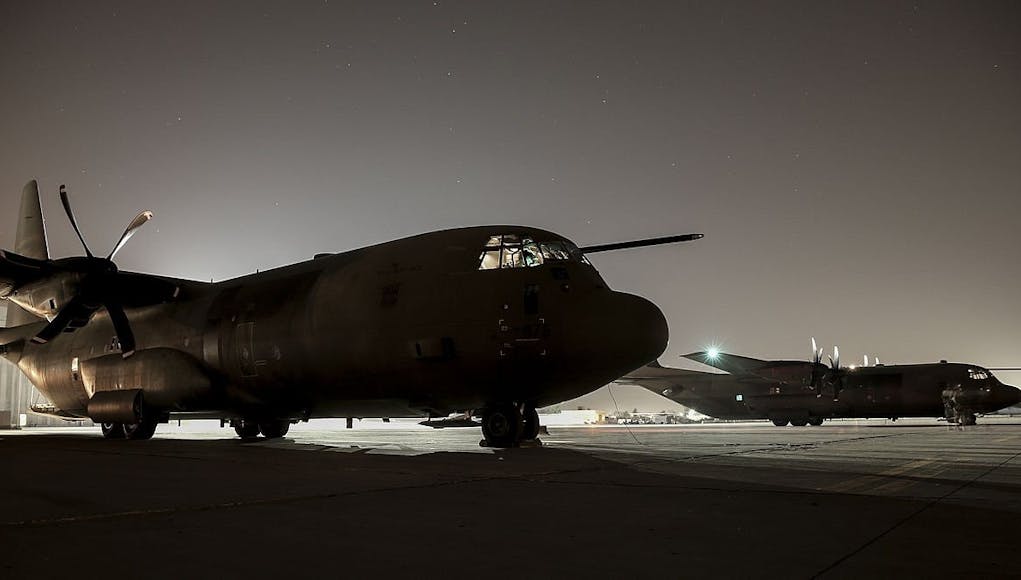
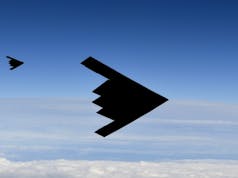
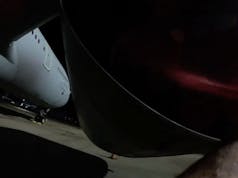

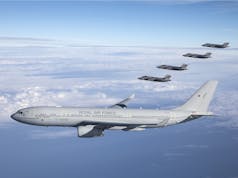
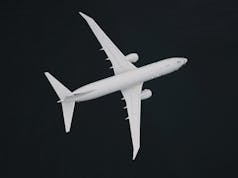
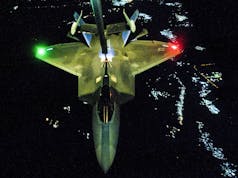

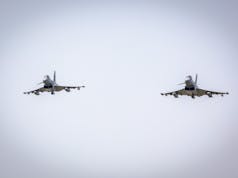

I do wish the MoD had a policy of declassifying accounts of special forces missions maybe some 10/20 years after they happened. Most would likely make for fascinating reading.
Why not just wait for Andy McNab or Chris Ryans next book ? For my part I’d sooner stick needles in my eyeballs but hey !
Due to tank chasing lawyers, i think we should wait until all persons involved have passed away. Just look at what is being done to those who served so bravely in Northern Ireland, disgraceful.
Doesn’t take my accidents to knock holes in such small fleets
Just had a quick search,looks like 3 have been lost in Iraq so far plus 2 were lost in Afghanistan,yes it will impact on the fleet but as Atlas deliveries are still ongoing there should be no major loss of capability.
Thank you Paul – do we have any in storage? The reason I ask is that due to the nature of special forces operations, one would imagine it only a matter of time before aircraft are lost. Our special forces – and our American cousins too – have my deepest admiration and respect. Very, very brave men indeed!
Well, the Hercules fleet has been falling in numbers for the past few years, and are being replaced by the Atlas fleet – so there’s probably a few kicking around. Fourteen Hercules airframes (the long variant) are due to stay in service, so it will be interesting to see if the airframe lost is one of those.
We’ve lost one herc as part of Operation Shader, and have had four losses in Iraq and Afghanistan in the previous decade – as well as one lost on landing at Brize Norton. These numbers show that accidents and incidents can and will happen, and with the small numbers we have, it’ll be harder to absorb those losses. Let’s remember that we have a fantastic, broad, and dedicated transport fleet – but I hope we’ll at least see the powers that be order those additional 3 Atlas airframes originally intended.
Thanks Lusty – I hope you are right regarding the 3 Atlas airframes but I have a sinking feeling ‘the powers at be’ will make the RAF make do with what they have remaining…. sad, I know but I have lost all faith in our politicians to do the right thing and properly fund our Armed Forces instead of paying mere lip service.
If I hear ‘we have the largest defence budget in Europe’ one more time….. ugggh!
There are no ‘spare’ Hercules. Those in storage at St. Athan are K models and the RAF only trains on the J now. The Atlas also is nowhere near ready to take on the work the J does so any further attrition will significantly impact Ops. I’d be interested to see where the insurance goes….
Lusty – edit to add that the Hercules that this article refers too was indeed a C-130-J-30 (or C.MK4 in RAF service ) which is the long variant.
@Paul T Those were mostly C130K’s…
Also, Atlas can barely be described as capable, nevermind relying on it to replace the Herc.
Oh, want for an edit button, forgot to add that in my post above.
Oops! Not good. May now have to ramp up Atlas capability more rapidly than before. RAF has taken an extremely leasurely (and cautious) pace on this, not just because the aircraft has had issues (accepted) but also because they can afford to do so. Only A400M operator with the extreme luxury of a fleet of 130Js, C17s and Voyagers to fall back on while they cross every T and dot every I on Atlas before giving it the appropriate RTS. The plane has already demonstrated every logistic capability it needs to. On the tactical front it has already proven to be more capable than the J in hot and high and short, soft field operations. It has already demonstrated all required load drops, parachute extracted or gravity drop. It has already demonstrated paratrooper drop in the required numbers from the ramp and side doors (one side at a time). The only thing it hasn’t yet licked is simultaneous jumps from both doors. But there is no longer a requirement for mass parachute drops anyway, at least not a practical requirement, even though it still exists on paper. The army hasn’t done these in anger since Suez I think (correct me someone if I’m wrong). The sort of jump SF might want to do Atlas can handle. So it’s a question of being slightly less cautious (like the French, where needs must) and putting the signatures on the clearance papers and just getting on with it. But here also the SF community is to blame. They are extremely conservative and refuse all change. They were dragged kicking and screaming from the Ks to the Js. And now they will do everything they can to resist converting to the A400M, I suspect. Yes the planes still have some reliability issues. But increasingly so do the Js, and the picture for A400M is an improving one whilst for the J it will only ever be a worsening one, even though Marshall have done a good job of improving availability. Time to bite the bullet and change!
“On the tactical front it has already proven to be more capable than the J in hot and high and short, soft field operations”
What a load of nonsense, mate. Do you work for Airbus Military or something? ?
No not any more but I was their CEO in U.K. for five years and responsible for introducing A400M into RAF service. And it’s not me saying the bit about short, soft, hot, high. It’s the RAF T&E pilots themselves. It has greater ground clearance, lighter footprint and much more installed power. Weight for weight it simply outperforms the J in every parameter. It has already demonstrated repeated passes at CBR 4 with greater weights than the J can handle, although it hasn’t received the formal clearance for that yet. Can’t exactly recall now but I believe they only received formal clearance for CBR 7 or 8? And that’s my point. Accelerate the OT&E and get the outstanding issues ironed out and the clearances issued. The luxury the RAF have had up to now thanks to an embarrassment of riches in their transport fleet may begin to wear thin if tired Js have more accidents and the cost of running them on escalates. The A400M availability issue is a separate point that needs to be addressed continuously and which I have never sought to hide.
How is their not a requirement for massed Airborne drops? Someone apparently forgot to tell the US, Russia, France, and China about this insight. Major operations by Airborne since WWII include:
Korea War: Twice by the US 187th RCT.
The Suez: Britain and France
Vietnam: Operations Mouette and Junction City successful. Operation Castor failed due to Navarre’s arrogance.
Congo: Operation Dragon Rouge by Belgian paratroopers in 1964.
Indo-Pakistani Wars: 1965 Pakistani operation on three cities resulted in failure due to lack of preparation. 1971 India successfully conducted the Tangaril Drop in Bangladesh cutting off the Pakistani line of retreat.
East Timor: By Indonesian paratroopers in 1975.
Congo: Again in 1978 this time by French and Belgians at Kolweiz for Operation Leopard
Grenada: Airport at Port Salines seize by US Army Rangers in 83.
Panama: Divisional level drop and follow up by the 82nd Airborne and Army Rangers 1989.
Iraq: Northern airfields taken by the 75th Rangers and 173rd Airborne Brigade.
Pakistan: 2009 anti-insurgencey campaign by paratroopers in the North.
Mali: French Foreign Legion parachuted near Timbuktu as part of Operation Serval.
I tend to be of the thought that the SF and Army know what they need to get their jobs done. The Airborne has proven itself in numerous countries so getting rid of the mass jump requirement for one plane is simply wrong. Especially when you consider they should have been able to model the issue with the doors being used simultaneously during the design stage and adjusted to suit.
Elliot, thanks for that. So I was right that no UK mass jumps since Suez? I obviously cannot go into details because I may be breaking confidentiality rules. Suffice to say I don’t make these statements up. I only repeat what I’ve heard from operators. And you’re absolutely right that operating tactics should not have to suffer major modifications due to inadequacy of new equipment. That is why Airbus and the RAF (and the FAF and others) will continue to work on this issue until it is totally solved. My point was that progressive (or limited) Release to Service can and should be awarded to allow paradropping with certain limitations but which still fulfills 100% of a particular operational requirement. Shouldn’t be made to wait till the full capability is demonstrated. The RAF can afford to adopt this approach cause they have the luxury of a fleet of C-130Js alongside their A400Ms. No other A400M operator has that luxury. Same reason the RAF has not found the need to give their C-17s a parachuting RTS either, although the US do this all the time (although that decision i believe is under review). And the reason simultaneous twin door jumps remain an issue, btw, is the extremely symmetrical and clean airflow behind the A400M. It’s not an actual design fault as such. This leads to a higher than normal probability of two paratroopers colliding in the airstream behind the aircraft before their chutes fully open. This also happens in the C-17 and the C-130J. It’s a question of the level of risk an Air Force (any Air Force) is willing to accept. The percentage risk is lower with the J cause it’s airstream behind it is asymmetric and quite turbulent, so less likely for a collision to occur. Airbus thought the airflow deflectors installed ahead of the paradoors would be sufficient to disrupt airflow during a jump, but it turns out they are not. So very detailed work is now ongoing modelling jumps to come up with the most efficient solution acceptable to all parties. But the full stick of 53 paratroopers per side has already been cleared, so all that is awaited now is the technical fix to do both sticks simultaneously.